Oral & Maxillofacial Surgeons on the Hobbies That Keep Them Grounded
ACOMS Editor
9/8/2025
What do surfing, triathlons, section hiking, and Olympic weightlifting have in common? For these four oral and maxillofacial surgeons, they’re essential outlets that bring discipline and balance to their demanding professional lives.
In this article, Dr. Dipa Patel shares how triathlons have become a grounding force in her life. Dr. Patrick Abbey reflects on the lifelong lessons he’s learned from surfing and how the rhythm of the ocean mirrors the unpredictability of surgery. Dr. Rob Mitchell explains how coaching Olympic weightlifting has shaped his leadership and resilience both in and out of the OR. And Dr. Matthew Ryskalczyk recounts his solo section hikes along the Pacific Crest Trail and the mental reset they provide.
Triathlons: Dipa Patel, DDS, Virginia, United States
It’s hard to pick a favorite, but I’m probably best known for triathlons. Skiing and golf are also huge passions of mine. I got into triathlon because of a photo — Dr. Ron Schneider, my program director, had a picture on his desk of himself finishing an Ironman. He used to drive from New Jersey to New York just to train us, and something about that image stuck with me. I knew I wanted to do one someday. We all miss him so much. He didn’t train with me for triathlons, but he trained me as a surgeon — and his dedication and passion made me want to follow in his footsteps in every way.
Training for triathlons while working in OMS isn’t easy. I wake up at 5 a.m., squeeze in naps over lunch when I have two workouts a day, and always pack food, water, and protein ahead of time. Massages are non-negotiable for shoulder and neck pain, and in the early years, having a tri coach helped me stay on track. I’ve completed 12 half Ironmans and three full ones, plus probably 20 or more shorter races. There have been so many unforgettable moments—like in Cozumel, during the marathon leg, when I gave a guy a pack of Skittles from my special needs bag. We ran and walked together for an hour, total strangers sharing a painful, beautiful moment. I’ll never see him again, but I’ll never forget that connection.
There are so many things in life we can’t control. But this sport is simple. You do the work, you prepare, and you succeed. That’s why I always say — don’t skip the things you love. This career is rigorous, and we choose it because we want to live full, balanced lives. In a profession that carries immense stress, triathlons are how I invest in myself. I’ve only met two other Indian women who race in this sport. It’s a tiny minority, and sometimes it feels like I don’t belong — but I’ve made it my own. Don’t ever let the world tell you what you’re capable of.
Surfing: Patrick Abbey, DMD, Florida, United States
Surfing has always been a part of my life, from sharing with my brother growing up to sharing with my children into their adulthood. I am of an age when surfing was more of a fringe sport, and one that you definitely didn’t put on your dental school application or chat about during interviews for residency programs, as images of Jeff Spicoli would immediately come to mind! (The younger crowd might have to Google that one).
As I was a little removed from the mainstream, it was the perfect escape from the stresses of all our training and practices. Blending into the living system of the ocean as a part of its rhythm, as sets of waves come in, takes all your attention and focus. After over 30 years of practice, I think that’s an important part of your life balance — to have a passion that provides you with a “reset” mentally.
Anyone who surfs or has attempted knows what a humbling and sometimes scary experience it can be. The power of the ocean and Mother Nature know how to put you in your place. I think, in our elite specialty, that’s not such a bad thing. Sitting in the lineup where you are waiting for waves, it is extremely unusual for someone to ask, “So, what do you do?” Everyone is typically focused on being in the ocean, negotiating the waves, and being in the moment. It makes you, in a good way, step away for a time from your identity as a surgeon.
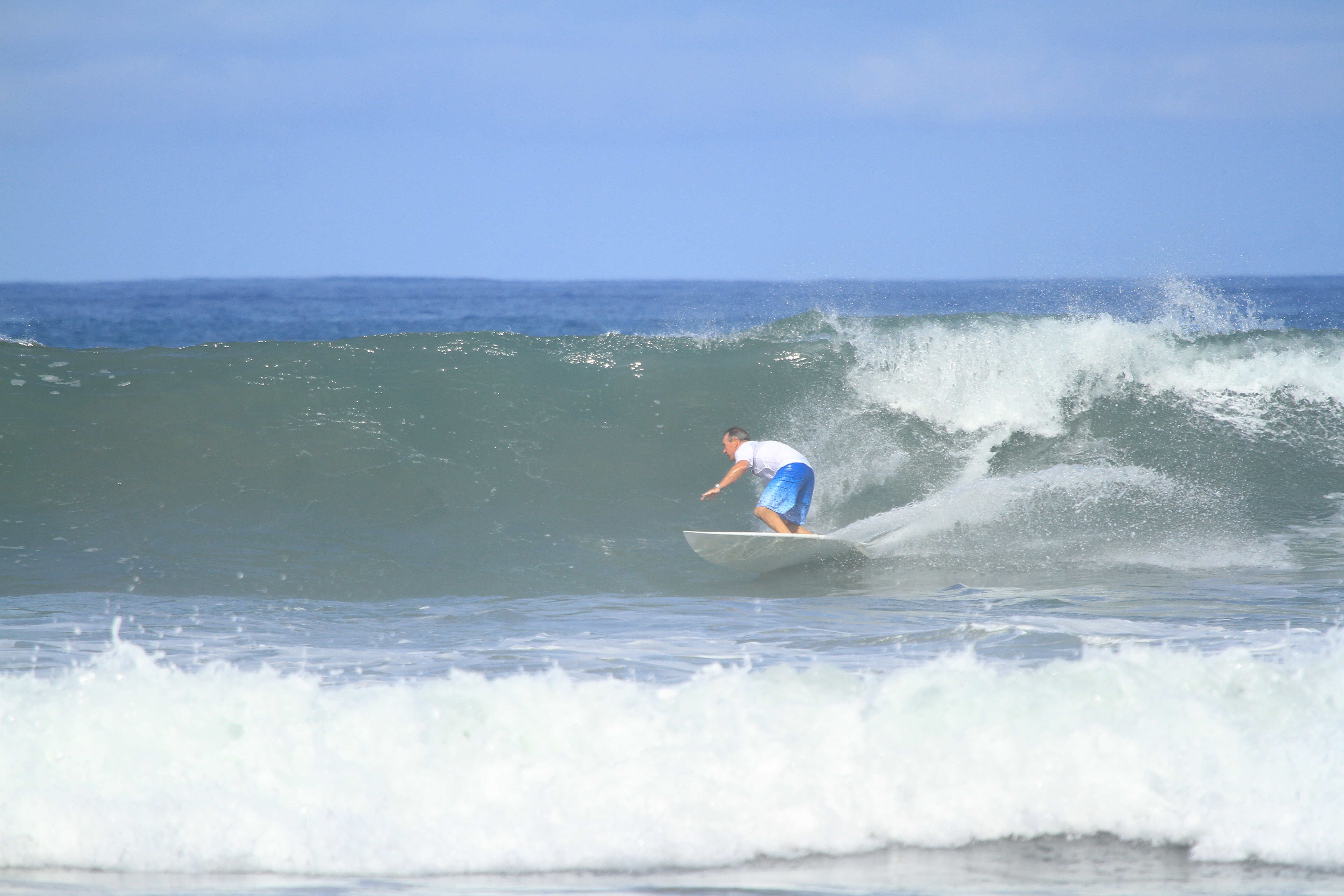
Dr. Abbey catches a wave.
There are so many lessons that translate to our everyday lives as surgeons as well:
Learning how to fall and deal with failure gives a great lesson in patience.
Learning not to panic, even while being held under water in heavy surf, translates so well to stressful moments in surgery. A calm, level-headed approach to any problem will typically provide the best outcome.
Each day in the surf is different. Every wave brings its own challenges and enjoyments. You have to plan carefully, considering the wind, tide, and swell, and even your choice of board can have a huge impact on how your day goes. Much like in surgery, poor planning often leads to poor performance. From how you paddle to catch the wave, to what the wave offers in terms of turns and glide, and even how you finish your ride to paddle back out — it’s all interpreted moment by moment. You’re constantly adjusting. Those same skills apply to us professionally.
In surgery, we use tools like 3D imaging and optical scanning for virtual planning, and we can prepare custom plates and cutting guides. But perform the same osteotomy on 10 different patients, and you’ll still need to adapt — adjusting to their unique anatomy, possibly changing fixation choices on the fly, managing minor complications, and responding to 10 different perceptions of the surgical outcome.
I have been blessed to have been part of such an incredible specialty in my career, and love having an equally incredible hobby as a balance in my life. I could only hope the same for all of my colleagues in both regards.
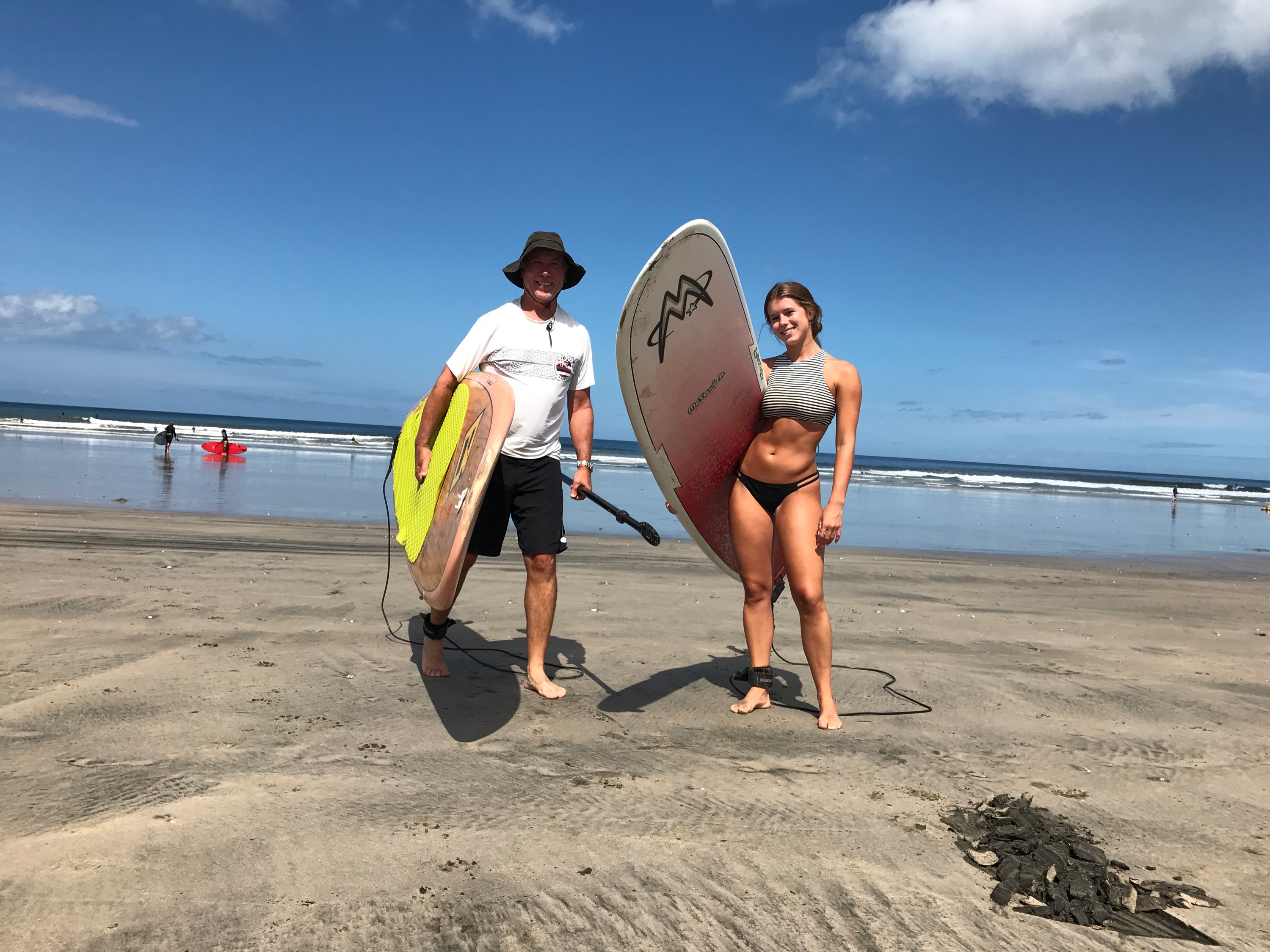
Dr. Abbey surfing with his daughter in Costa Rica.
Weightlifting: Rob Mitchell, BDS, MDS, FRACDS(OMS), FADI, New South Wales, Australia
I've been an Olympic weightlifting coach since 2000 and have served as head coach for several Australian Weightlifting teams. I currently coach at my club in Sydney three nights a week and on Saturday mornings, working with about 20 members. I’m also part of the National Coach Education Team and deliver several coaching courses each year. Teaching young people the value of discipline through sport is one of the most rewarding parts of the job — it helps them develop the ability to handle pressure in all areas of life.
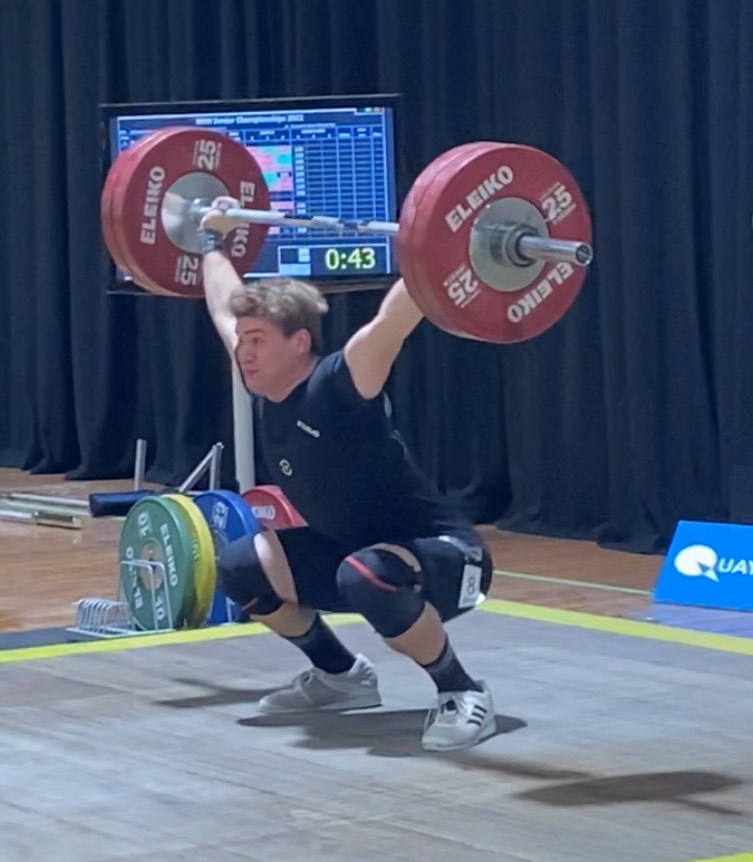
Dr. Mitchell in his Olympic weightlifting days.
I started as an athlete in the sport, then moved into administration and coaching. I served as president of the Australian Weightlifting Association for four years. The highlight of my career so far has been leading the Australian team as head coach at the 2014 Glasgow Commonwealth Games.
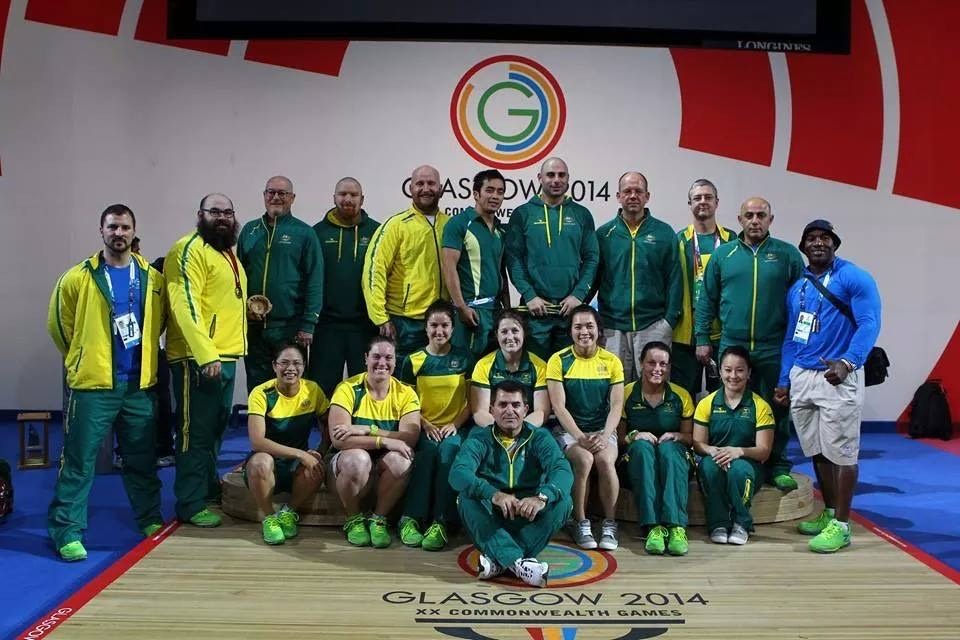
Dr. Mitchell's team at the Commonwealth Games.
The discipline I’ve learned through high-performance sport has directly influenced how I manage high-pressure situations in OMFS.
My advice? Always pursue things you love outside of your profession. It keeps you balanced, exposes you to a wide range of people, and helps you stay young and fresh.
Section Hiking: Matthew Ryskalczyk, DMD, MD, Washington, United States
In 2021, I completed the 75-mile Section J of the Pacific Crest Trail (PCT), through the Alpine Lakes Wilderness in Washington, in three-and-a-half days. The PCT spans from Mexico to Canada across 2,653 miles, consisting of sections A through L. In 2023, I completed the rugged and very isolated 126-mile Section K in five days, and most recently in 2025, finished Section L to the Canadian border — 60 miles in three days. Each of these trips were completed solo with a 24-28 lb. pack holding all my food and gear, plus trekking poles.
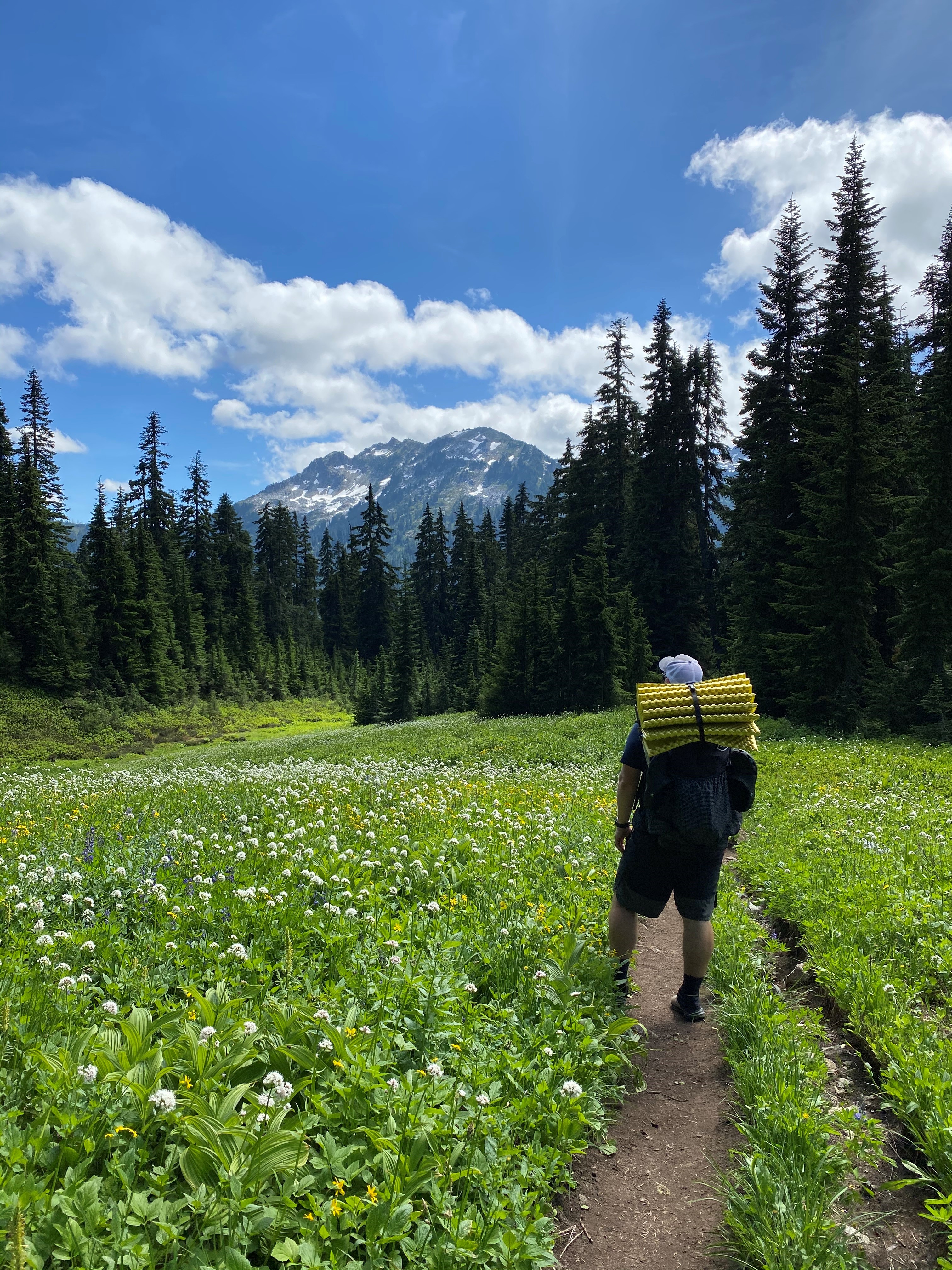
Dr. Ryskalczyk on the PCT Section J at Alpine Lakes Wilderness in 2021.
What draws me to section hiking is the physical challenge and the departure from my normal work and professional life. It takes about a day to stop thinking about OMS practice work, and very quickly, my mind begins to focus on simpler and primitive decision-making. Diagnosing and treatment planning get replaced with decisions such as, “Should I hike 19 or 24 miles today?” and “Should I eat gummy bears or M&Ms for breakfast?” The beauty lies in the seemingly simple choices of day-to-day life on the trail, not to mention the physical beauty that one experiences hiking 15-25 miles a day across mountain passes, lakes, and rivers.

Another shot from the PCT Section J trail.
Friends and family are often concerned when I plan to complete these trips solo. But doing them alone is the only way to go. It's challenging to coordinate time off with others, and frankly, it's nice to make solo decisions. Still, these popular trails are not devoid of people. There are many hikers out along the trail at any one time during the hiking season, so I meet people from all over the world.
The opportunity to allow my mind to take a break from the mental energy and intensive decision-making practice of OMS are why I have the last week of July penciled in for section hiking for the next many years. Skills we learned, honed, and practiced in education and surgery training, such as discipline and determination, serve me well while on the trail. When the mosquitoes are swarming, you just keep hiking. When it rains, you stay warm when you just keep hiking. When you get blisters, you take some ibuprofen and just keep hiking, knowing that you need to finish the section because you must work the following Monday.
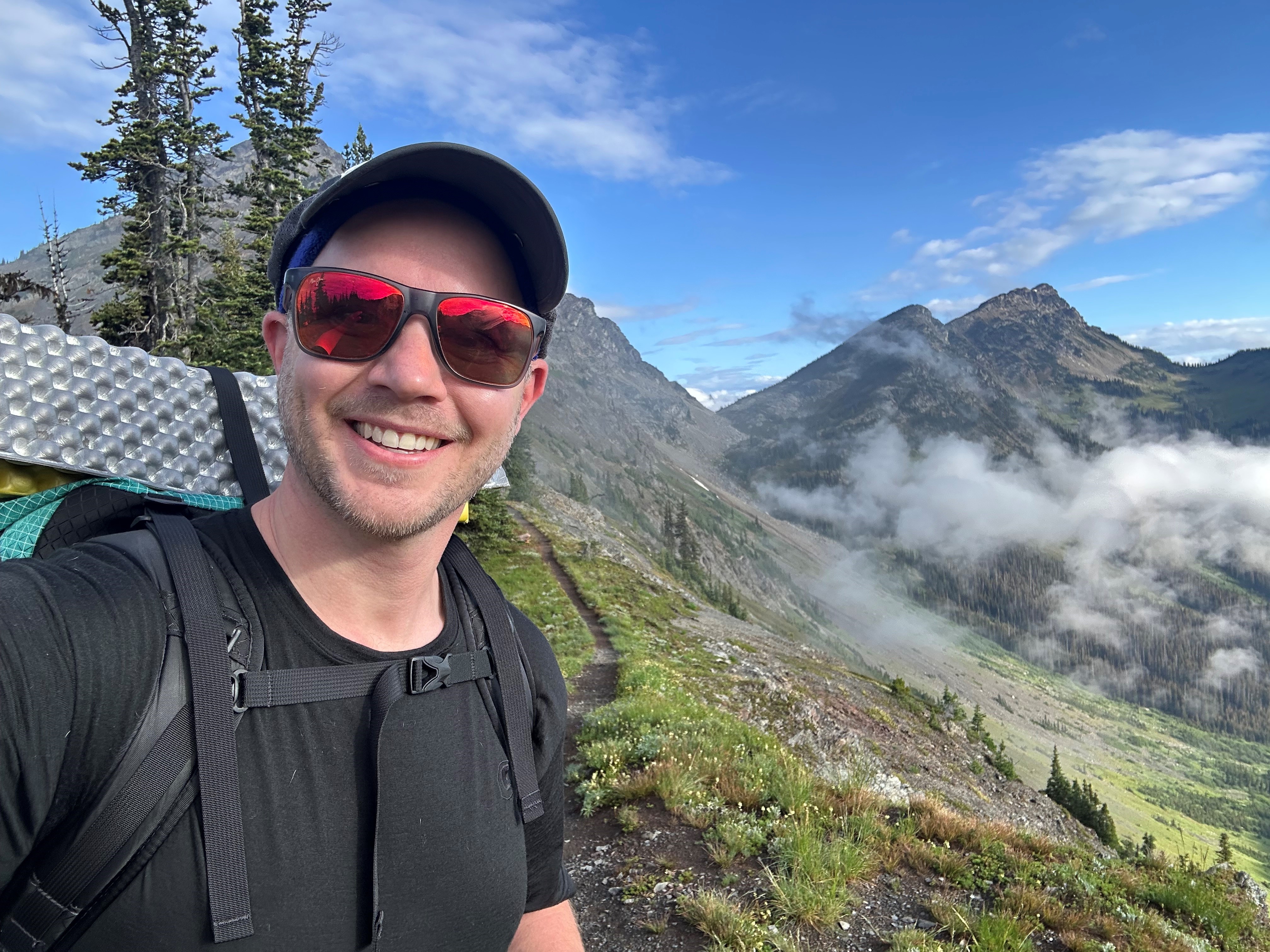
Woody Pass, PCT Section L, North Cascades Pasayten Wilderness in 2025.
To some, these seem like awful experiences and pure misery, but when I am back in the office the following week, waiting for my day to start, I think about how one week ago, I was solo on a trail without anyone around, carrying my pack, having hiked five miles already that morning, eating gummy bears and listening to Blink 182 on my headphones. I feel pretty fortunate to have the ability to have this juxtaposition between my life and practice of OMS and my section hiking passion outside of the profession.